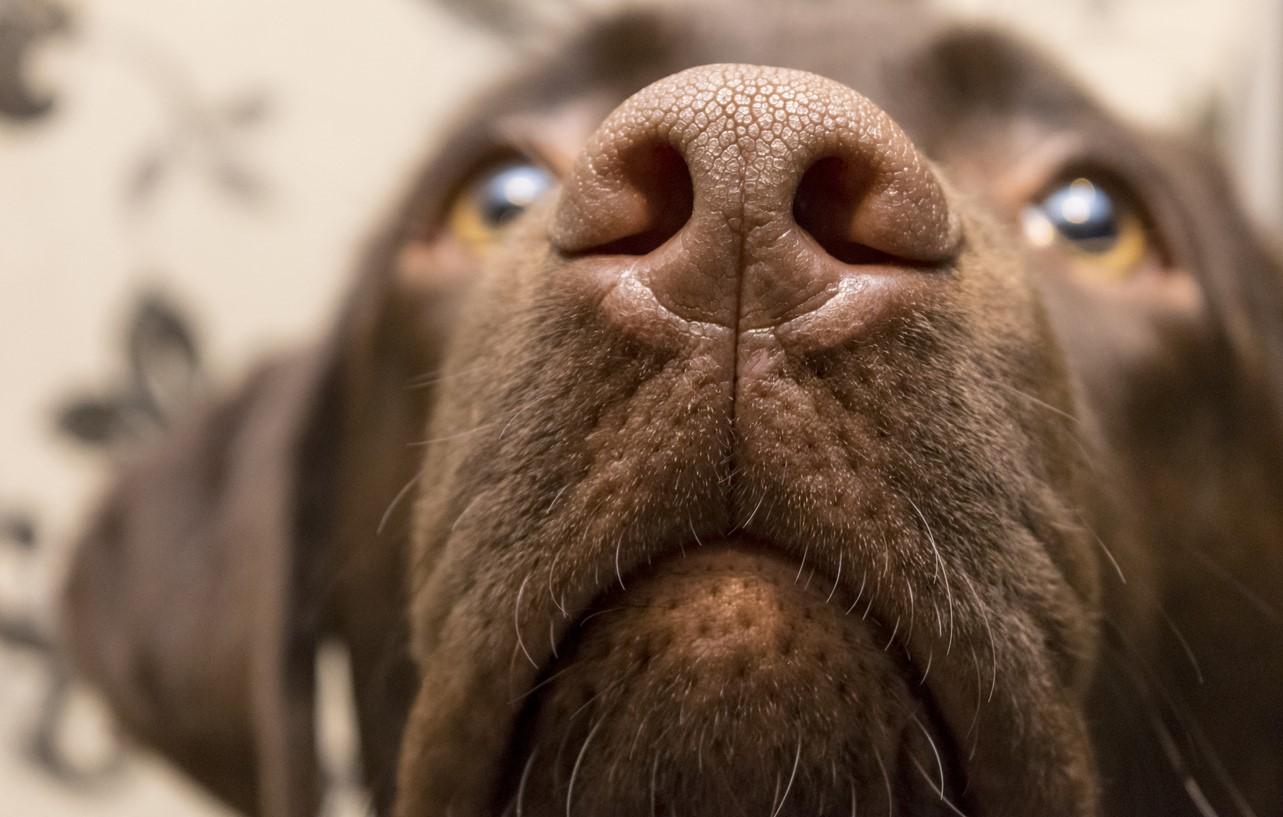Scent-trained dogs detected COVID-19 infection with 83% sensitivity and 90% specificity in nearly 3,900 screenings at California K-12 schools in spring 2022, according to a research letter published today in JAMA Pediatrics.
A team led by researchers from the California Department of Public Health, which also sponsors a statewide school-based COVID-19 antigen testing program, used two trained dogs in 50 visits to 27 schools from April 1 to May 25, 2022, a period dominated by the SARS-CoV-2 Omicron variant. The medical-alert dogs had undergone 2 months of COVID-19 scent training in a lab, where they achieved greater than 95% sensitivity and specificity.
Sensitivity is the probability of correctly identifying all positive cases; the higher the sensitivity, the lower the likelihood of false-negative results. Specificity, on the other hand, is the ability to accurately identify those who don't have a condition; the higher the specificity, the lower the risk of false-positive results.
The study authors noted that California's antigen testing program is effective but that it requires personnel, testing supplies, and sample collection and produces medical waste, while dog-based detection takes only seconds and is generally free of medical waste. "Scent-trained dogs are a strategy for rapid, noninvasive, low-cost, and environmentally responsible COVID-19 screening," they wrote.
90% overall accuracy
The researchers piloted the program at a subset of volunteer schools on antigen-testing days. The median age of the 1,558 participants was 13 years; 55.8% were females, 89% were students, and 68% were screened at least twice.
Scent-trained dogs are a strategy for rapid, noninvasive, low-cost, and environmentally responsible COVID-19 screening.
During the 3,897 paired dog-antigen screenings, participants stood 6 feet apart, facing away from the dogs, while the handler-led dogs sniffed their ankles and feet, sitting when they detected potential COVID-19 infection. Participants then underwent BinaxNOW rapid-antigen testing.
If a dog signaled a participant as COVID-positive but antigen testing results were negative, the signal was considered a false-positive. If a dog didn't signal and antigen testing results were positive, the signal was considered a false-negative.
The dogs accurately identified 85 infections and ruled out 3,411 infections, for an overall accuracy of 90%. However, they inaccurately signaled infection 383 times and missed 18 cases, for a sensitivity of 83% and specificity of 90%.
Efficient, noninvasive screening method
The researchers said their study differed from other COVID-19 dog studies in that the canines screened people rather than samples. "Our method was associated with improved testing efficiency but had a modest decrease in sensitivity and specificity compared with laboratory results," they wrote.
The decreased sensitivity and specificity in the field compared with in the lab could have been due to distractions such as noises and young children and environmental factors such as wind and ambient odors, they said.
"We considered other options, including a sample collection strategy used by other investigators; however, those options would sacrifice cost and time efficiency," the authors wrote.
While the study was limited by a low SARS-CoV-2 prevalence and number of infections, the researchers want to someday perform large-scale variant-of-concern screenings with COVID-sniffing dogs, reserving antigen testing for only participants with dog-identified potential infections. They estimated that this move would reduce the number of antigen tests performed by about 85%.
"While modifications are needed before widespread implementation, this study supports use of dogs for efficient and noninvasive COVID-19 screening and could be used for other pathogens," they concluded.





















